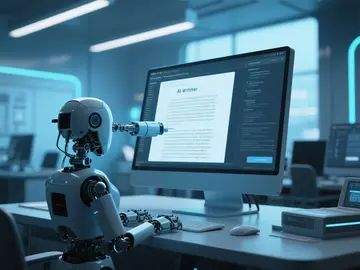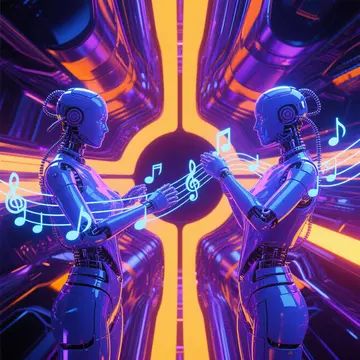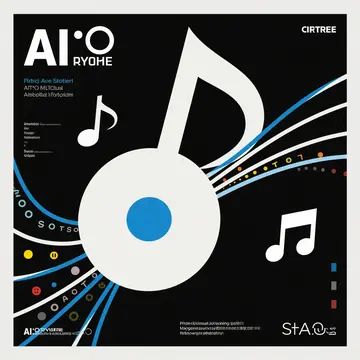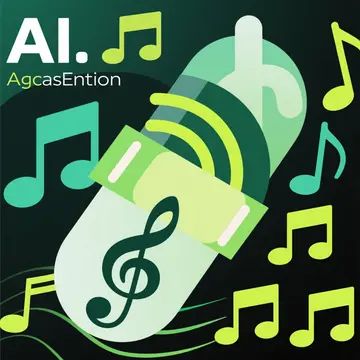Introduction: Why Copyright Matters in AI Music
As AI transforms music creation, copyright laws struggle to keep up. ??? The key distinction between AI-Assisted vs AI-Generated Music has major legal implications—from ownership rights to royalty disputes.
This article breaks down:
? How copyright applies to human-AI collaborations
? The legal gray areas of fully AI-created music
? Practical steps to protect your work
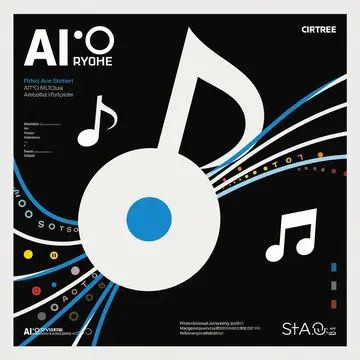
Copyright Law Basics: Human vs Machine Authorship
?? Traditional Copyright Principles
Copyright protects original works of authorship fixed in a tangible medium. Historically, this meant:
Only human creators could hold copyrights
The work needed sufficient human creativity
?? How AI Challenges These Rules
With AI-Assisted vs AI-Generated Music, we face new questions:
Where does human input end and AI begin?
Can algorithms be "authors"?
AI-Assisted Music: Clearer Copyright Ground
? Who Owns the Rights?
When humans use AI as a tool (e.g., for mixing, lyric suggestions, or melody generation), courts generally view this similarly to using traditional instruments or software.
Key Factors for Copyright Protection:
Substantial Human Creative Input (e.g., selecting/changing AI suggestions)
Original Expression (not just AI output without modification)
Case Example:
A producer using LANDR for mastering retains full copyright—the AI merely executes technical adjustments.
AI-Generated Music: The Legal Gray Zone
? Can AI Hold Copyright?
Major rulings say no:
2023 US Copyright Office Decision: AI-generated images without human modification can't be copyrighted (Théatre D'opéra Spatial case)
UK Law: Currently requires "human intellectual effort"
?? Risks for Fully AI-Created Music
No Copyright Protection → Anyone can use/reproduce it
Potential Infringement → If AI was trained on copyrighted works
Industry Impact:
Stock music platforms now require disclosure of AI-generated content to avoid legal issues.
Global Copyright Approaches to AI Music
| Country | AI-Assisted Music | AI-Generated Music |
|---|---|---|
| USA | Protected if human-directed | No protection (current stance) |
| EU | Protected under author's rights | Debating "sufficient human input" standard |
| Japan | Flexible interpretation | May allow AI copyright with human curation |
| UK | Protected | Requires human "arrangement or selection" |
How to Protect Your AI-Involved Music
?? For AI-Assisted Works
Document your creative process (screenshots, project files)
Modify AI outputs substantially
Register copyrights where possible
?? For AI-Generated Works
Add significant human elements (vocals, rearrangements)
Check platform policies (Spotify, YouTube, etc.)
Consider alternative protections (trade secrets for AI models)
Expert Advice:
"Treat AI like a session musician—if you want copyright, you need to be the creative director."
— Dr. Andres Guadamuz, Intellectual Property Scholar
Emerging Legal Battles to Watch
?? 1. Training Data Lawsuits
Getty Images vs Stability AI (ongoing)
Potential implications for music-generating AIs
?? 2. Voice Cloning Cases
Universal Music vs AI Voice Startups
Could affect AI-generated vocals
FAQ: AI Music Copyright Questions
? Can I copyright a song made with AI tools?
Yes, if you significantly arranged/composed the elements. Raw AI outputs may not qualify.
? Do I need to credit AI in my music?
Legally no (yet), but ethically yes—and some platforms now require disclosure.
? Can I use AI-generated music commercially?
Proceed with caution—without copyright, others may use it too. Modify it for better protection.
The Future of AI Music Copyright
Upcoming developments may bring:
?? New "AI Contributor" copyright categories
?? Mandatory training data transparency
?? Blockchain-based AI content tracking
Key Takeaways for Musicians
AI-Assisted = Safer (document human involvement)
AI-Generated = Riskier (add your own creative spin)
Stay Updated—laws are evolving rapidly
Pro Tip: When in doubt, consult an entertainment lawyer before releasing AI-involved music.

